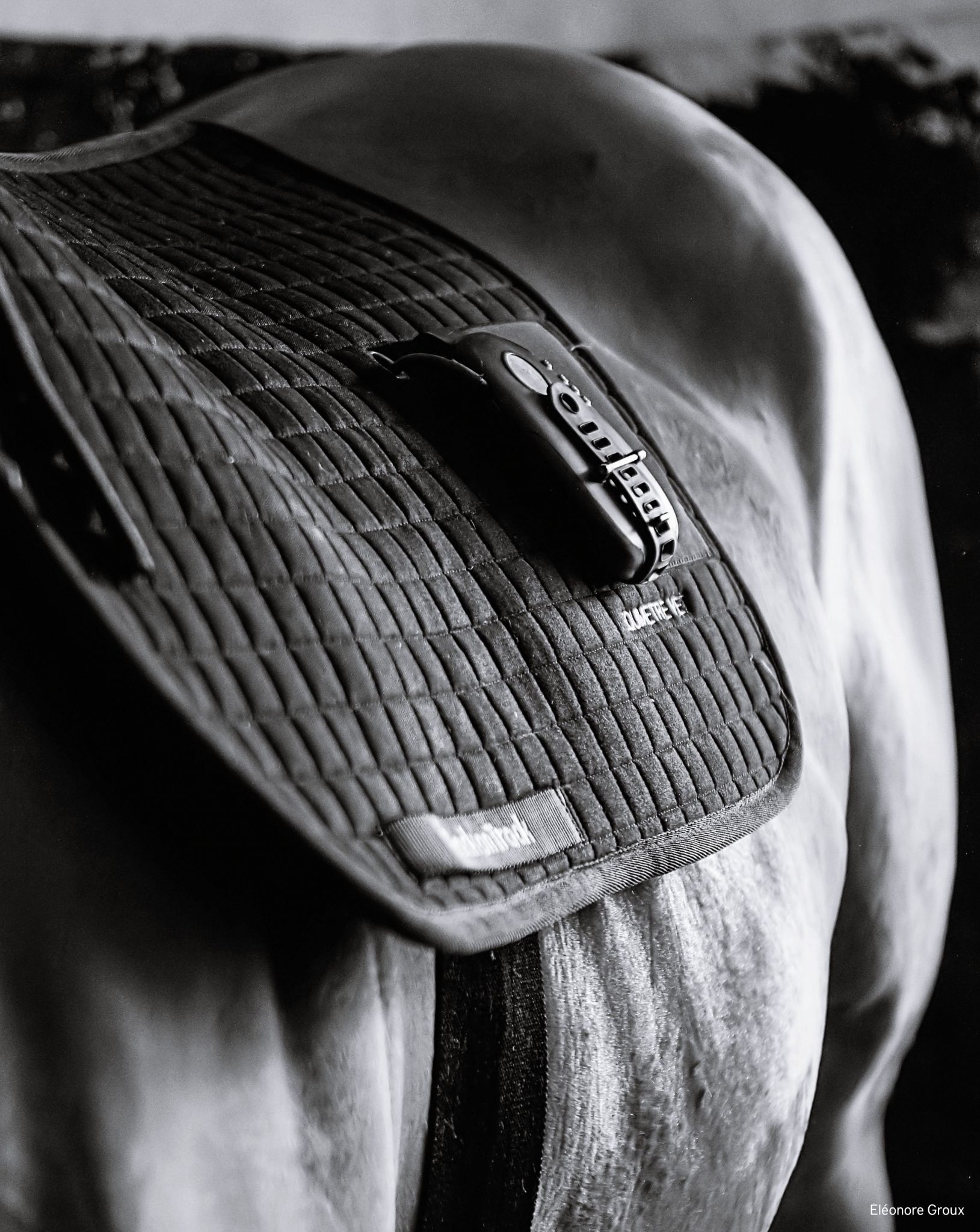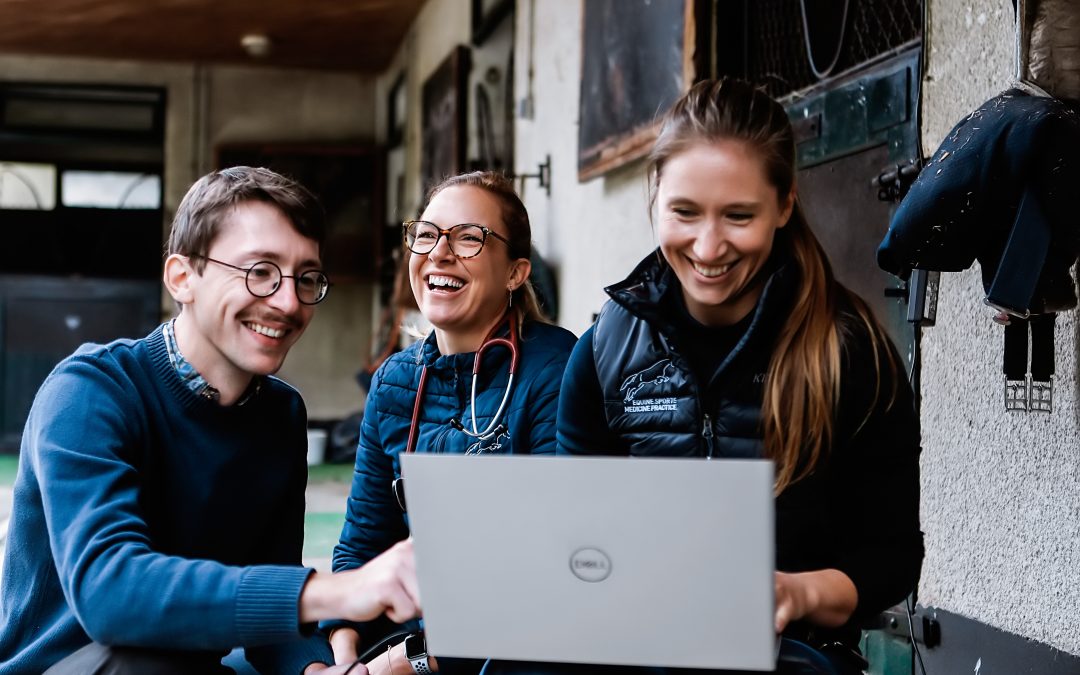A SCIENTIFICALLY VALIDATED PRODUCT
After more than 4 years of research and development carried out by our team based in Paris, EQUIMETRE has received the last international Arioneo’s patents WIPO | PCT and US Patent Application Publication.
The electrodes are the key to obtain a fine electrocardiogram at full speed. They are an important asset for veterinarians and researchers. They allow to capture the horse’s heart signal throughout the hair during the entire effort so that we can obtain an electrocardiogram (ECG) at rest but also while galloping at more than 60km/h.
EQUIMETRE automatically records all ECGs from each training session which can be extracted and analysed by a veterinarian. In the case of poor performance or poor recovery, the analysis of the ECG during exercise allows the detection of arrhythmias, atrial fibrillation and other heart rhythm disorders.
EQUIMETRE from Arioneo has established itself as a partner in the health and performance of horses. The trainer has, at his disposal, the ability to re-run trainings, the speed of the horse, and also, furlong by furlong, locomotion and heart rate.
Unlike other connected devices, EQUIMETRE allows integration of many sporting parameters, while offering a simple understanding of the exercise. The quality of the measurements is such that they can be used to establish a diagnosis of cardiac arrhythmia based on the recorded electrocardiogram.
A TELEMEDECINE TOOL
A racehorse’s team includes many people with different missions: trainers, owners, training riders, jockeys, veterinarians, farrier… They all share the major challenge of communicating the necessary information for the proper development of the horse’s performance and health. EQUIMETRE is an innovative, practical and easy-to-use solution that facilitates communication between the various players who interact with the horse, in particular the veterinary team.
Like top athletes, racehorses are monitored on a daily basis by medical teams (veterinarians, osteopaths, nutritional experts, etc.) on the lookout for the slightest warning sign of a pathology. As the trainer is the key link between the horse and these veterinary teams, the training data collected over time can considerably facilitate communication between the trainer and the veterinarian.
By giving veterinarians access to training data, the veterinarian may be able to judge from a distance whether on-site intervention for further examinations is necessary. To analyse a counter-performance, to accompany a rehabilitation, the analysis of locomotor parameters, the evolution of recovery according to the intensity of the work required can give valuable information to the veterinarians.
The accounts of our Equimetre platform include a specific feature developed especially for veterinarians who wish to offer telemedicine services. A system of linked mirror accounts allows a veterinarian to consult the horses of all his clients, who access their own account and see only the training of their own horses. Thus, from their office, veterinarians can analyse longitudinal work, remotely respond to doubts from the trainer and detect early warning signs of pain or abnormal cardio, in order to intervene as soon as possible.

These are tools that help. They don’t replace us, they don’t replace either the trainer or the rider but they make the horse talk. They will in a much more sensitive way put a figure on a possible problem and allow the training to be adapted. For example, if a training of one type is too intense for a horse, we will know it and we will be able to reduce the workload.
Key words: electrocardiogram, ECG, scientifical research, telemedecine, veterinarian, veterinarian communication, longitudinal work, racehorse physiological data, individualisation of training, equine sports medecine


